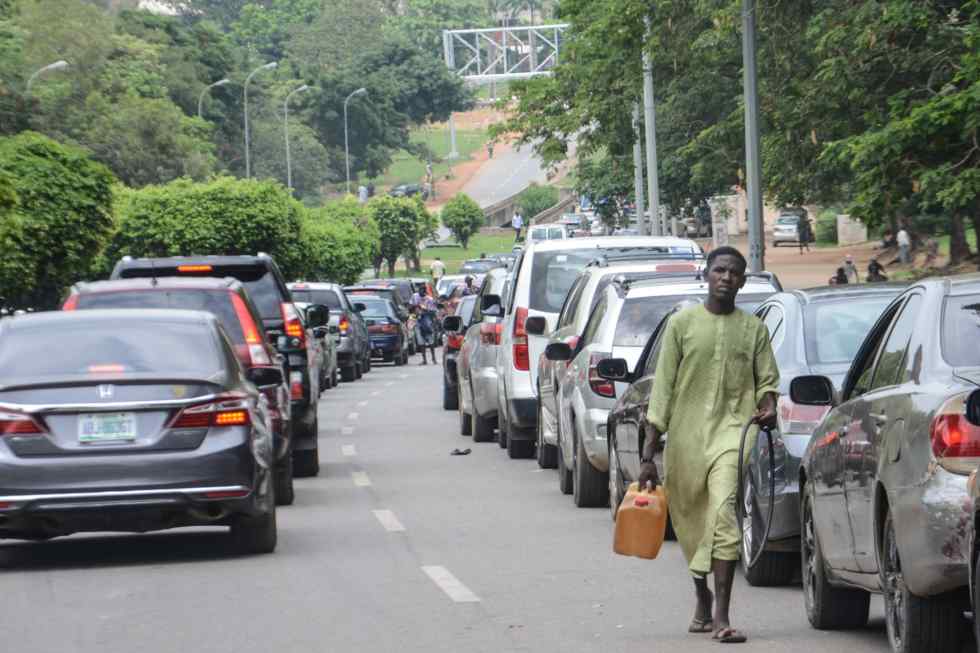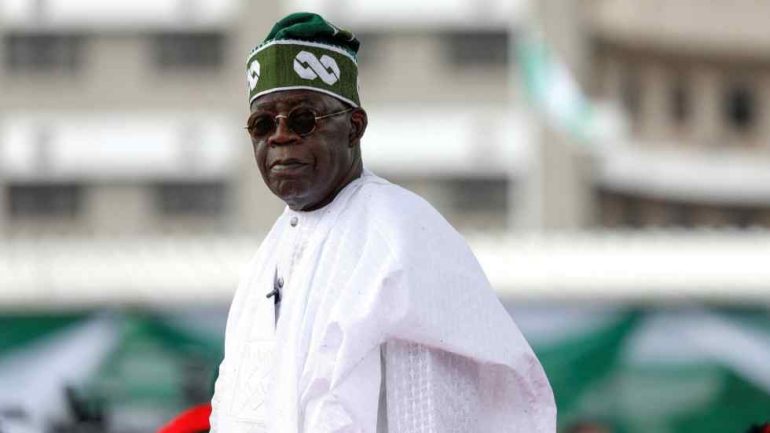Nigeria’s president Bola Tinubu took office in May as a continuity choice from his predecessor’s party, the All Progressives Congress (APC), yet less than three weeks later, the 71-year-old has come out swinging.
He has scrapped fuel subsidy, ceased to bolster the currency and suspended the heads of the central bank and anti-corruption agency, EFCC, prompting investors to welcome the burgeoning overhaul of Africa’s largest economy.
This week, they sent the price of Nigerian dollar bonds to their highest level since January as the market-friendly changes appeared to mark a shift from his predecessor’s static approach.
Feyi Fawehinmi, an author and political commentator, said: “Tinubu’s early moves have all been plucking low-hanging fruits. [But] you still have to give him some credit for bothering to pluck them.
“The bar is incredibly low — [former president Muhammadu] Buhari did not bother to pluck any fruits, low hanging or not.”
Still, observers say Tinubu faces much knottier challenges if he is determined to boost growth and curb spiralling insecurity in the country of more than 200m people. One in three Nigerians of working age is unemployed; and oil production, the life blood of the economy, has plummeted in recent years.
“Tinubu will eventually run out” of easy wins, said Fawehinmi. “The test starts then.”
Tinubu’s margin of victory in February’s election, the lowest since Nigeria’s return to democracy in 1999, raised concerns that he would have little room to take economically sound, but politically tough decisions.
The vote was widely seen as flawed and his victory is still being challenged in the courts by two opponents. The fractious country has few expectations of its new leader.
Yet on Tinubu’s first day in office late last month, he axed popular, but ruinously expensive $10bn-a-year petrol subsidy, promising to channel the funds into social programmes for healthcare and education. Fuel prices tripled, leaving pricing at a rate that implies most of the previous subsidy has been cut.

More than 63 per cent of the country’s population are classed as “multidimensionally poor”; Tinubu is racing to reach a deal with labour unions to increase the minimum wage and soften the blow of the subsidy cut. But he has been spared the mass protests that followed a previous government’s move to slash subsidies in 2012.
Not long after the subsidy move, Tinubu last week suspended the Central Bank of Nigeria governor, Godwin Emefiele. Under Emefiele the bank had been co-opted by Buhari’s administration and lent more than $50bn to the central government.
The central bank immediately abandoned its long-standing policy of tightly controlling the foreign exchange market to artificially prop up the value of the naira currency against the US dollar.
The bank replaced that policy with market-determined rates and eliminated the several exchange rate “windows” that created a multi-tier system for those seeking hard currency.
In response, the official naira exchange rate plunged to its lowest level on record — moving it closer into line with the black market rate that most Nigerians have long had to accept.
Tinubu’s aggressive start is an indication of his embrace of economic orthodoxy, a marked departure from Buhari’s interventionist tendencies, even though both men belong to the ruling All Progressives Congress (APC) party.
But since the abrupt cut to fuel subsidy, no coherent plan has been released on how to manage the economic fallout, said Adedayo Ademuwagun, a consultant at Songhai Advisory. Inflation of more than 22 per cent is expected to climb further when the effects of the subsidy removal are factored in by the statistics agency.
Tinubu’s latest move was to suspend the head of the country’s anti-corruption agency, AbdulRasheed Bawa, this week to “allow for proper investigation into his conduct while in office”.
Both Bawa and former central bank chief, Emefiele, are now in the custody of the intelligence service.
Yet Ademuwagun said Bawa’s dismissal should be seen as part of an inevitable political transition: every president since 2007 has brought in a new leader at the anti-corruption bureau.
Wilson Erumebor, a senior economist at the Nigerian Economic Summit Group, said removing the naira’s peg to the dollar was a “long overdue” policy but added: “It needs to be complemented with other structural reforms that are required to improve productivity and non-oil exports.”
“Markets will react positively in the next few days as a result of the policy, but for how long will this positive reaction last?”, he asked, adding “We must continue to improve our productive base by improving output and productivity of the manufacturing sector.”
Tinubu faces another pressing problem: security. An attack by unidentified assailants in the North-Ccentral state of Plateau killed, at least, 21 people this week in a stark reminder of the challenges.
Deteriorating security has fed into food inflation as many farmers have been driven off their farms by violence resulting from a long-running battle with nomadic herders over fertile land. This has dented hopes of increasing local production to make Nigeria less reliant on imports.
Ikemesit Effiong, head of research at SBM Intelligence, said Tinubu needs to quickly unveil his plan to tackle insecurity to avoid playing catch-up on multiple fronts as his predecessor often did.
“The same level of proactiveness that he has shown in dealing with the structural issues in the economy — he hasn’t necessarily demonstrated a similar posture toward security, and that could be an issue,” Effiong said.
Analysts are now watching closely for Tinubu’s appointments to key government posts such as the central bank chief and finance minister. Fawehinmi, the author, said Tinubu must provide “clear guidance” to his team to avoid the open bickering among government officials that marked Buhari’s tenure.
“Tinubu can’t do everything himself, and once he moves into the phase of having to rely on people for his policy success, relationships and ego and even corruption will need to be very carefully managed,” he said.
Source: Financial Times
